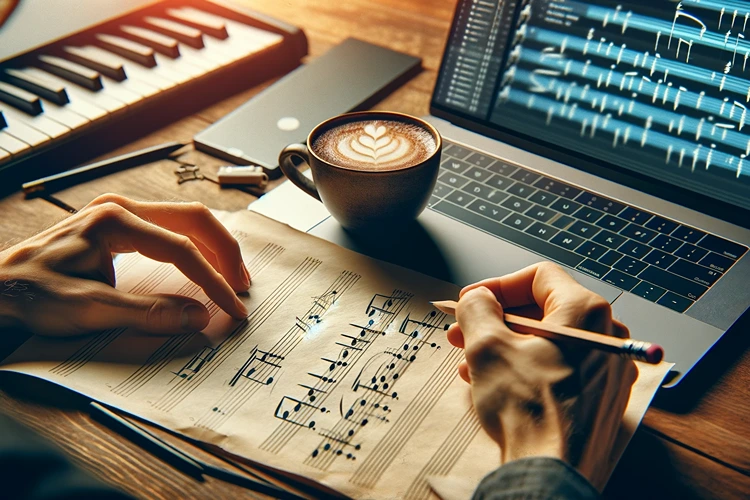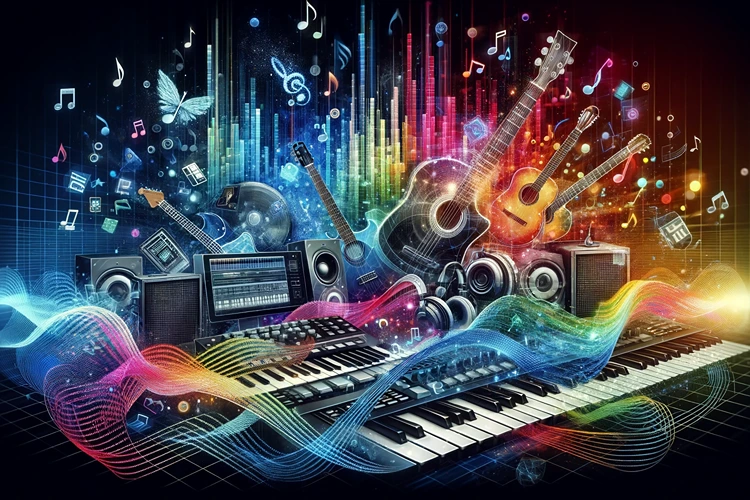Whether you’re a budding musician, a seasoned producer, or simply a music enthusiast, the digital age has something for everyone. From online tutorials that demystify music theory to apps that turn your device into an instrument, the world of digital music resources is more accessible than ever. But where do you start? Let’s dive into the treasure trove of tools that can enhance your musical journey.
Exploring Online Music Learning Platforms
The internet is awash with platforms designed to teach you music. These range from beginner-friendly apps to advanced courses led by professionals. Sites like Coursera, Udemy, and Skillshare offer comprehensive lessons on everything from guitar playing to music production. YouTube is another invaluable resource, hosting thousands of tutorials for free. Each platform has its unique approach, making learning music more flexible and interactive than traditional methods.
Helpful Hint:
Start with free resources to understand what style of learning suits you best. Many platforms offer trial periods or free introductory lessons. This way, you can sample various courses without committing financially.
Virtual Instruments and Software
Gone are the days when owning a physical instrument was a prerequisite for making music. Digital Audio Workstations (DAWs) like Ableton Live, FL Studio, and GarageBand have revolutionized music production. These software programs offer a plethora of virtual instruments, from synthesizers to drum kits, allowing users to compose entire tracks from their computers or mobile devices.
- Ableton Live: Known for its intuitive interface and powerful live performance capabilities.
- FL Studio: Favored for its pattern-based composition environment and extensive plugin library.
- GarageBand: A great starting point for beginners, available for free on Mac and iOS devices.
Music Theory Websites and Apps

Understanding music theory is crucial for any musician. Thankfully, there are numerous websites and apps dedicated to this subject. Musictheory.net offers lessons and exercises on everything from reading music to chord progressions. Apps like Tenuto and Theory Lessons provide interactive ways to learn and practice music theory concepts on the go.
Stats:
A survey showed that musicians who utilize digital tools for theory training improve their skills twice as fast as those who rely on traditional methods alone.
Streaming Services and Music Discovery
Streaming services like Spotify, Apple Music, and SoundCloud are not just platforms for listening to music; they’re also powerful tools for discovery and inspiration. Curated playlists, radio stations, and recommendation algorithms can introduce you to new genres, artists, and songs, fueling your creativity and broadening your musical horizons.
Collaboration Tools for Musicians
In today’s connected world, collaboration doesn’t require being in the same room—or even the same country. Platforms like Soundtrap by Spotify allow musicians to work together on projects in real-time, online. BandLab is another such tool, offering a cloud-based DAW for collaborative music creation. These platforms democratize music production, making it accessible to anyone with an internet connection.
Utilizing Social Media for Musical Growth
Social media platforms like Instagram, TikTok, and YouTube have become indispensable for musicians looking to showcase their talent and grow their audience. Beyond mere exposure, these platforms offer unique ways to engage with fans, receive feedback, and even collaborate with other artists. Utilizing hashtags, participating in challenges, and sharing behind-the-scenes content can significantly increase your visibility and connect you with a global audience.
Music Libraries and Archives Online
For those interested in music history or searching for rare pieces, online music libraries and archives are a gold mine. The Internet Archive and the Digital Public Library of America host an array of recordings, sheet music, and historical documents. These resources are invaluable for researchers, educators, and anyone with a keen interest in the evolution of music across different cultures and eras.
Podcasts and Webinars for Music Enthusiasts
Podcasts and webinars offer deep dives into a wide range of music-related topics. From interviews with industry professionals to discussions on music theory, technology, and history, these platforms provide insights that can inspire and inform. Subscribing to podcasts like “Song Exploder” or attending webinars hosted by music schools can be a great way to stay connected with the latest trends and developments in the music world.
Pros and Cons of Digital Music Resources
- Pros:
- Accessibility: Digital resources are available to anyone with an internet connection, breaking down geographical and financial barriers.
- Variety: There’s a vast array of tools and platforms catering to different aspects of music, from learning and production to discovery and collaboration.
- Community: Online platforms provide a space for musicians to connect, share experiences, and collaborate, creating a sense of community.
- Cons:
- Information Overload: The sheer volume of resources can be overwhelming, making it hard to know where to start or which sources to trust.
- Quality Variation: The quality of digital resources can vary greatly, with some offering far more value than others.
- Less Personal Interaction: While digital tools offer convenience, they can’t fully replicate the experience of in-person lessons or collaboration.
FAQs
Bottom Line
The landscape of digital music resources is vast and varied, offering tools, platforms, and information that can empower anyone to explore, create, and share music. By leveraging these resources, musicians and enthusiasts alike can unlock new opportunities for learning, collaboration, and growth. Remember, the journey through music is as much about discovery as it is about creation. Dive into the digital music resources available to you, and see where your musical journey takes you.

